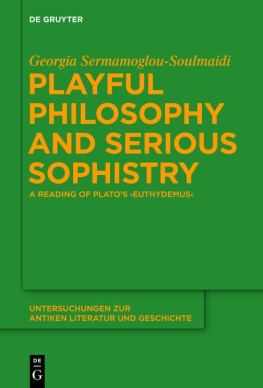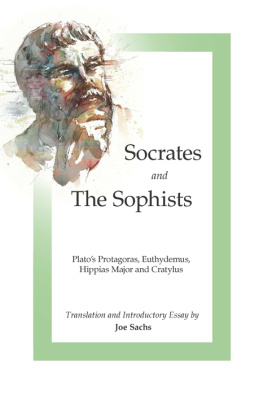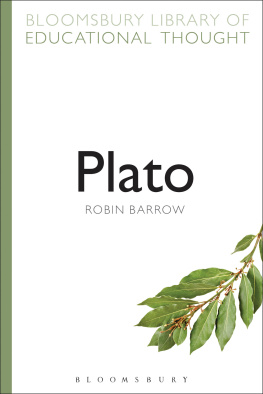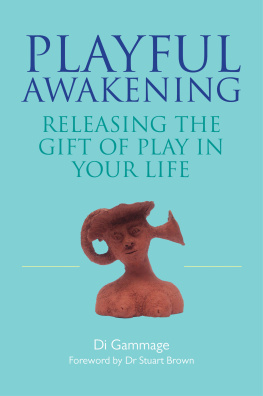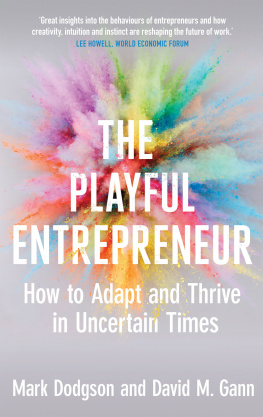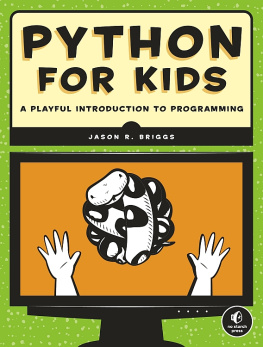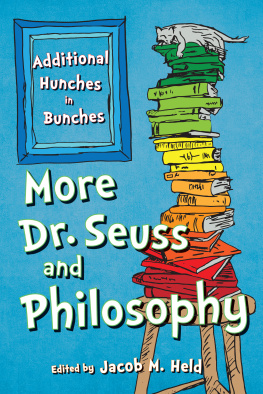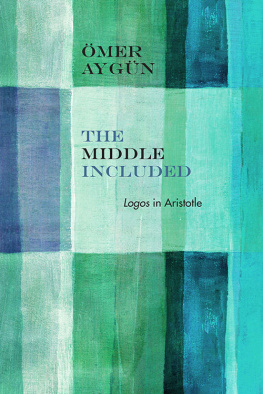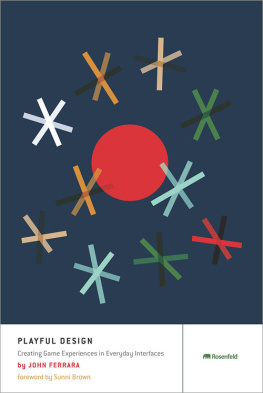Sermamoglou-Soulmaidi - Playful Philosophy and Serious Sophistry
Here you can read online Sermamoglou-Soulmaidi - Playful Philosophy and Serious Sophistry full text of the book (entire story) in english for free. Download pdf and epub, get meaning, cover and reviews about this ebook. year: 2014, publisher: De Gruyter, genre: Science. Description of the work, (preface) as well as reviews are available. Best literature library LitArk.com created for fans of good reading and offers a wide selection of genres:
Romance novel
Science fiction
Adventure
Detective
Science
History
Home and family
Prose
Art
Politics
Computer
Non-fiction
Religion
Business
Children
Humor
Choose a favorite category and find really read worthwhile books. Enjoy immersion in the world of imagination, feel the emotions of the characters or learn something new for yourself, make an fascinating discovery.
- Book:Playful Philosophy and Serious Sophistry
- Author:
- Publisher:De Gruyter
- Genre:
- Year:2014
- Rating:3 / 5
- Favourites:Add to favourites
- Your mark:
- 60
- 1
- 2
- 3
- 4
- 5
Playful Philosophy and Serious Sophistry: summary, description and annotation
We offer to read an annotation, description, summary or preface (depends on what the author of the book "Playful Philosophy and Serious Sophistry" wrote himself). If you haven't found the necessary information about the book — write in the comments, we will try to find it.
Playful Philosophy and Serious Sophistry — read online for free the complete book (whole text) full work
Below is the text of the book, divided by pages. System saving the place of the last page read, allows you to conveniently read the book "Playful Philosophy and Serious Sophistry" online for free, without having to search again every time where you left off. Put a bookmark, and you can go to the page where you finished reading at any time.
Font size:
Interval:
Bookmark:
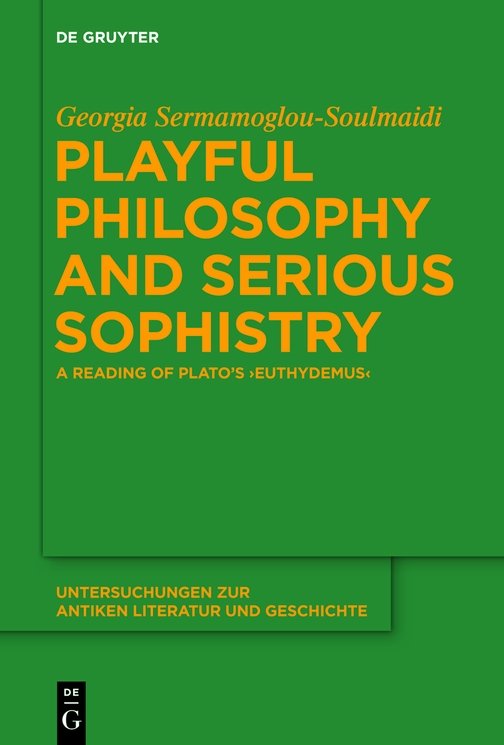
Introductory Framing Scene: 271a1272d6
Internal Dialogue:
First Eristic Scene 272d7277c7
First Protreptic Scene 277d1282e6
Second Eristic Scene 283a1288b2
Second Protreptic Scene 288b3293a6
Third Eristic Scene 293a7303a9
Concluding Framing Scene 303b1307c4
This book set out to provide an interpretation of the Euthydemus as a whole, showing the importance not only of the protreptic scenes but also of the eristic and framing ones for a full appreciation of the philosophical theme of the work. The first two chapters provided an analysis of the internal dialogue: while earlier scholarship had focused on the differences illustrated in this part of the work between the Socratics and the sophists, it was here argued that the two parties also share some significant similarities, both in the content of their arguments and in their respective methods. The third chapter turned to the framing scenes, showing how they both motivate and comment on the internal dialogue. Finally the fourth chapter discussed the motifs of laughter and play, demonstrating that they contribute significantly to the characterization of Socratics and sophists; in fact, they reinforce the impression gained through the analysis of the arguments about the methods of the two parties. It is now time to provide an overall interpretation of the dialogue, drawing on both its philosophical and its dramatic aspects: what is the Euthydemus finally about?
The work sets out to answer the following question, posed by Crito at its beginning: in what does the wisdom of the two brothers, Euthydemus and Dionysodorus, consist? Socrates claims that, in order to answer fully, he must give an account of his entire interaction with the sophists. So the internal dialogue is intended to provide that answer. But this it never does in an explicit way: Socrates never specifies exactly what the sophists teach. Implicitly, however, his narration reveals a number of things about eristic wisdom: the first eristic scene shows the brothers feigning concern for the identification of the proper student and the object of learning, but in fact intimidating their current student and cancelling out all possible answers to their own questions; in the second eristic scene they claim that all statements are true, and so no one can refute anyone else while all they have been shown to do is refute successive interlocutors; finally, the central claim of the third eristic scene is that everyone knows everything and so learning appears unnecessary. But if this is the case, the sophists are denying the very possibility or usefulness of the transmission of the knowledge which they claim to possess and be able to transmit. Moreover, if the illustration of their method suggests that they teach refutation rather than virtue, they explicitly deny even the possibility of that. Thus the knowledge of the sophists appears to lack any particular object.
Now the protreptic scenes sandwiched between the eristic ones also aim to identify an object of knowledge that of the philosophers and they also fail to determine it explicitly. Here the epistemological question is connected with an ethical one: the central claim of the protreptic scenes is that knowledge is necessary and sufficient for happiness. This knowledge is acquired through philosophy and transmitted through politics; but the particular sort of knowledge to be acquired and transmitted is not specified. In this respect, eristic wisdom and philosophy seem to suffer from the same problem.
Yet the implication is that eristic simply lacks a specific object of knowledge, whereas philosophy does have one, which, however, requires that the student be prepared to undergo a longer process of inquiry: the sought-after form of knowledge leading to happiness is implicitly identified as the one that will make the individual a good man, and this knowledge, it is also implied, comes about through recollection of the Forms. Moreover, the attitudes of the two parties toward knowledge are radically different: while Socrates does not specify but only appears in the process of searching for the sort of knowledge leading to happiness, the sophists do not specify that sort of knowledge either, and yet they claim omniscience. Philosophers are presented as learners, sophists as knowers.
But the two parties show certain similarities in method: they both engage in some sort of conversing or dialectic; they both use fallacious arguments, and so they can both be viewed as playful; and in the final scene they almost exchange roles: the sophists, in a way, speak of Forms and Recollection, while Socrates eventually starts speaking like a sophist; further, Ctesippus imitates the eristic methods, while Euthydemus starts asking for permission to qualify his statements. There are also reversals in certain motifs of the dialogue, emphasizing that roles have been temporarily exchanged between the two groups: in the early part of the Euthydemus Cleinias blushes, the sophists and their followers laugh at the Socratics, and the Socratics are reduced to silence; in the later part of the dialogue Dionysodorus blushes, Ctesippus and Cleinias laugh at the sophists, and the brothers are reduced to silence. As the practices of Socratics and sophists almost merge into one, certain audiences are likely to fail to draw the dividing line between them.
In light of these similarities and role reversals, the repeated allusions to the Clouds become meaningful: there Socrates was cast as a sophist; here, Socrates still shares some traits with his philosophical opponents, while the sophists themselves, at least in the final eristic scene, appear oddly reminiscent of philosophers. The tragicomedy of the Euthydemus responds to the challenge of the comedy of the Clouds: it both acknowledges the similarities and illustrates the differences between philosophy and eristic, at the same time underlining the danger of conflation between them. The Euthydemus shows how similar Socrates and the sophists may appear, how grotesquely Socratic / Platonic views can be distorted, and how such distortions can persist through time and lead to unjustified accusations of philosophy; it is of course telling that the internal dialogue ends with Dionysodorus accusing Socrates of impiety, which is clearly evocative of the actual accusations raised against the historical Socrates.
Now the final framing scene of the Euthydemus comments precisely on this implication of the internal dialogue, that the similarities between the two methods can lead to conflation between them. They illustrate how the audience of a comedy be it the audience of the Aristophanic comedy or the audience of the comedy that is the internal dialogue can indeed fail to recognize what may properly be termed philosophy, and what may not. Certain similarities between Socratics and sophists are undeniable; but the distinction between them is equally undeniable, and one ought to be able to make it. Yet even Crito hardly manages. And so the Euthydemus ends with the assignment of this task to him: he must first determine what philosophy is, before choosing an appropriate teacher for his son.
Thus the Euthydemus begins with the aim of identifying the wisdom of the sophists; in the course of the dialogue this is juxtaposed and even conflated with the (sought-after) wisdom of the philosophers; and the question with which the dialogue ends concerns the distinction between the two. The Euthydemus is artfully crafted into an organic whole. It ends by raising the same question with which it began, and with which the reader, in light of the internal dialogue, is invited to engage afresh.
Font size:
Interval:
Bookmark:
Similar books «Playful Philosophy and Serious Sophistry»
Look at similar books to Playful Philosophy and Serious Sophistry. We have selected literature similar in name and meaning in the hope of providing readers with more options to find new, interesting, not yet read works.
Discussion, reviews of the book Playful Philosophy and Serious Sophistry and just readers' own opinions. Leave your comments, write what you think about the work, its meaning or the main characters. Specify what exactly you liked and what you didn't like, and why you think so.

